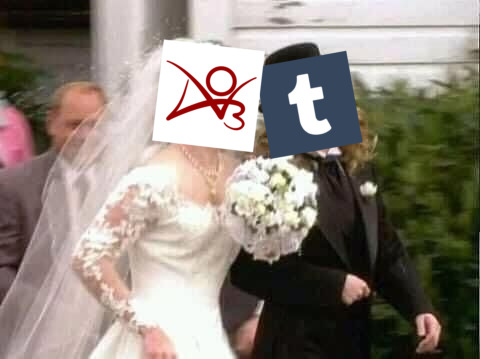i may look new but I've been on this hellsite longer than i care to admit 28 | ISTP | Libra
Don't wanna be here? Send us removal request.
Note
i think tom hiddleston is ugly but it seems like no one in real life agrees with me and its making me feel crazy. Please god what is your take on this is he ugly or not i dont know whats real anymore
he's ugly but who give a shit he's loki and youre not???????
46K notes
·
View notes
Text
shipping characters who are just friends in canon is more than okay but what’s annoying is when people take screenshots of them touching and say “friends don’t do that!”. i hate to break it to you but friends do hug and hold hands and cuddle. saying ‘friends don’t do that’ is reenforcing the idea that physical touch is reserved for lovers
37K notes
·
View notes
Text

Hey Tumblr what the fuck are you doing

3 notes
·
View notes
Text
Another point is that they're the eldest sons of their father. I think that would lend itself to Fingon seeking advice from the elder Maedhros, as well as Maedhros being concerned about his wellbeing. Eldest sons with a lot of pressure, they'd bond on the "so there's this thing--" "yeaaaah i know. It really sucks doesn't it" "yeah it does." Level. Then as Fingon gets older, the gap of age shortens, and they have a lot more in common as friends.
In the same vein I think Finrod then got pulled into their friendship, another eldest son, and there was a camaraderie between the three of them. Something their own brothers don't understand because they aren't in that position.
People who don't ship them, how do you exactly think Fingon and Maedhros became close, and what is it that they share aside from a grandparent? I've recently realised that as much as I love their friendship narratively speaking, I only have the vaguest image of what it looked like when not currently the ground of Tragedy and Despair...
#silmarillion#tolkien legendarium#Fingon#Maedhros#finrod#i actually cannot ship them because I see this as such a brotherly bond#friends who understand each other on a different level
80 notes
·
View notes
Text
why is everyone so insistent the parents in the silmarillion be good. what if they're bad and they suck but they're still idolized by their children anyway.
154 notes
·
View notes
Photo








Obi-Wan Kenobi porn pack (insp.)
7K notes
·
View notes
Text
Penelope: Wow, this storm is big. I wonder why… Odysseus, her husband, that is currently stabbing the sh#t out of Poseidon:
259 notes
·
View notes
Video
This is cracking me up..why on earth did they delete his response in the movie!? hes so offended LOL
269K notes
·
View notes
Text



Dakota Johnson Is Not Okay While Eating Spicy Wings | Hot Ones
2K notes
·
View notes
Text

4K notes
·
View notes







